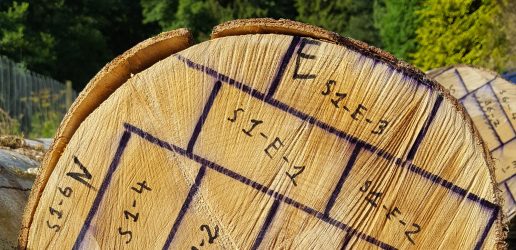
My name is Toni and I am a Research Statistician at Forest Research. I joined FR just over three years ago leaving a long career in academia as a statistical geneticist working on human health behaviours. Although I found my research career in academia incredibly rewarding I felt that I was moving further away from the work which I enjoyed the most – solving problems and analysing data – and spending more time writing grants to try to secure funding. When I saw the job advertised at Forest Research I wasn’t convinced I was the right fit having never worked in forestry or conservation; however, I joined in January 2020 and have been working here ever since.
One of my favourite things about my job is how varied it is. I act as a statistical consultant to all the science groups across Forest Research so one week I could be using machine learning to understand the causes of acute oak decline and the next week using regression models to find out how the public feel about urban trees.
Although my work is done entirely from the desk and a laptop it’s really rewarding to know that my analyses can have real world implications. I might do an analysis which finds that clones derived from trees in the wild are resistant to invasive pathogens when tested in the lab. These trees can then be used to restore wild tree populations and something I have contributed to will have a direct conservation impact.
My role also incorporates more general aspects of data science. I am really interested in creating impactful data visualisations and presenting findings interactively by using data dashboards and apps. I’ve really enjoyed taking the time to develop my data science skills and I’m so much better at coding now because of this.
There are still fewer female data scientists and analysts compared to men in the UK. My route into data science was not a typical one and I studied biology and genetics for many years before ending up as a statistical analyst. My advice to anyone considering a role as an analyst is to consider what transferable skills you may have. You don’t have to take the traditional route studying advanced mathematics or computer science. If you enjoy solving difficult problems, can think of novel ways to use data or have good coding skills, then there are many rewarding and interesting careers out there. I never thought that I would end up in forestry but I’m now part of a diverse and friendly team of analysts and every day is different.

Forest Research has announced that Dr Bianca Ambrose-Oji, currently Head of its Society and Environment Research Group, will succeed Professor Chris Quine FRSE as Chief Scientist from June 2025.
England’s non-woodland trees have been mapped for the first time, revealing these trees make up nearly one third of our nation’s tree cover.

Forest Research, in partnership with Edinburgh Napier University, have taken a first step in systematically assessing the timber potential of underutilised species in the UK.

Forest Research has announced that Dr Bianca Ambrose-Oji, currently Head of its Society and Environment Research Group, will succeed Professor Chris Quine FRSE as Chief Scientist from June 2025.
England’s non-woodland trees have been mapped for the first time, revealing these trees make up nearly one third of our nation’s tree cover.

Forest Research, in partnership with Edinburgh Napier University, have taken a first step in systematically assessing the timber potential of underutilised species in the UK.